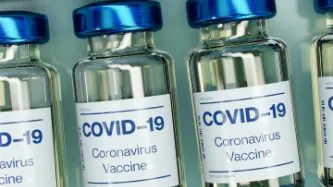Search
Content type: Long Read
As we see Covid-19 vaccination programmes beginning around the world, for the first time since the start of the pandemic there seems to be a light at the end of the tunnel as the fruition of truly unrivalled global scientific efforts has given us hope of saving lives, reopening our societies, and going back to “normal”.
This great moment of hope must not be seen opportunistically as yet another data grab. The deployment of vaccines, and in particular any “immunity passport” or certificate…
Content type: Report
National identity systems naturally implicate data protection issues, given the high volume of data necessary for the systems’ functioning.
This wide range and high volume of data implicates raises the following issues:
consent as individuals should be aware and approve of their data’s collection, storage, and use if the system is to function lawfully. Despite this, identity systems often lack necessary safeguards requiring consent and the mandatory nature of systems ignores consent…
Content type: Report
While identity systems pose grave dangers to the right to privacy, based on the particularities of the design and implementation of the ID system, they can also impact upon other fundamental rights and freedoms upheld by other international human rights instruments including the International Covenant on Civil and Political Right and the International Covenant on Economic, Social and Cultural Rights such as the right to be free from unlawful discrimination, the right to liberty, the right to…
Content type: Long Read
Immunity Passports have become a much hyped tool to cope with this pandemic and the economic crisis. Essentially, with immunity passports those who are 'immune' to the virus would have some kind of certified document - whether physical or digital. This 'passport' would give them rights and privileges that other members of the community do not have.
This is yet another example of a crisis-response that depends on technology, as we saw with contact-tracing apps. And it is also yet another…
Content type: Explainer
Definition
An immunity passport (also known as a 'risk-free certificate' or 'immunity certificate') is a credential given to a person who is assumed to be immune from COVID-19 and so protected against re-infection. This 'passport' would give them rights and privileges that other members of the community do not have such as to work or travel.
For Covid-19 this requires a process through which people are reliably tested for immunity and there is a secure process of issuing a document or other…
Content type: Advocacy
Privacy International welcomed the opportunity to contribute to the consultation on the Principles on Identification for Sustainable Development. Valuable lessons have been learnt, particularly in the last few years, on the serious consequences of identity systems. We have seen challenges in court that have found that key provisions of these systems are incompatible with the right to privacy enshrined in constitutions. We have seen civil society organisations highlighting the serious risks…
Content type: Long Read
Background
Kenya’s National Integrated Identity Management Scheme (NIIMS) is a biometric database of the Kenyan population, that will eventually be used to give every person in the country a unique “Huduma Namba” for accessing services. This system has the aim of being the “single point of truth”, a biometric population register of every citizen and resident in the country, that then links to multiple databases across government and, potentially, the private sector.
NIIMS was introduced…
Content type: News & Analysis
On 30 January 2020, Kenya’s High Court handed down its judgment on the validity of the implementation of the National Integrated Identity Management System (NIIMS), known as the Huduma Namba. Privacy International submitted an expert witness testimony in the case. We await the final text of the judgment, but the summaries presented by the judges in Court outline the key findings of the Court. Whilst there is much there that is disappointing, the Court found that the implementation of NIIMS…






